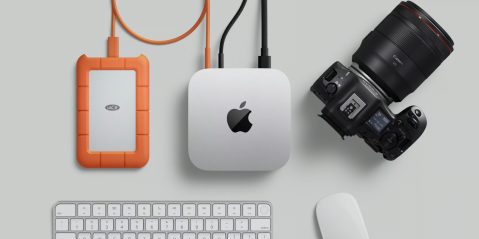
Apple today launched a new Lightning to USB-C cable that allows 12.9″ iPad Pro users to take advantage of faster charging afforded by its 29W USB-C Power Adapter. The cable, which comes in 1 meter and 2 meter varieties, is priced at $25 and $35 respectively.
The new cables are now available for purchase on Apple’s online store, and will only work with the larger 12.9″ iPad Pro model, not the just-launched 9.7″ model. Users wishing to take advantage of faster charging will also need to pony up for Apple’s 29w USB-C Power Adapter, which goes for $49.00.
If you already happen to own a 12″ MacBook, then you’ll already have the needed 29w USB-C Power Adapter to get started. As a bonus, you can also use the Lightning to USB-C cable to plug directly into your 12″ MacBook for syncing.
Regulatory information has long suggested that the iPad Pro could handle 29w at 14.5V x 2A. Today, this becomes a reality with the availability of Apple’s Lightning to USB-C cable.
 Keep in mind that the 12.9″ iPad Pro is also the only iPad Pro capable of taking advantage of USB 3.0 speeds. The 9.7″ version is still USB 2.0.
Keep in mind that the 12.9″ iPad Pro is also the only iPad Pro capable of taking advantage of USB 3.0 speeds. The 9.7″ version is still USB 2.0.
. @stroughtonsmith interesting tidbit pic.twitter.com/P2WvGILNmP
— Josh (@zigziggityzoo) March 21, 2016
Both Lightning to USB-C cables are available on Apple’s online store for shipping, but not yet available for in-store pickup. The 29w USB-C Power Adapter is available for both in-store pickup and shipping.
FTC: We use income earning auto affiliate links. More.







Dammit, Apple. Always two steps forward, one step back.
The cable is also able to charge all lightning devices not only the iPad pro
True, but unless you have lots of USB-C inputs around the house, no real reason to do so at this point if you don’t own a 12.9″ iPad Pro.
One word:
Finally!!!
Thanks Jeff, went ahead and purchased the 2 meter. Will make it a little easier to charge my ipad pro when I’m out with my macbook.
How fast will the 12.9″ charge now?! 4 hours previously is ridiculous
It would be about 2.5x faster than the 12W power adapter that came with the iPad Pro.
Will it play nice with a third party wall charger? Can see available ones for £11.
I presume it will use USB Power Delivery, like the MacBook and the Chromebook Pixel and Pixel C. Where are you seeing those chargers? If they’re that cheap they’re probably not USB-PD.
They’re made by ‘CHOE’ and can be found in that huge rainforest. Promise faster charging and all that.
@leehardacre
Those cheap Choe chargers use Qualcomm QuickCharge, which is a proprietary charging protocol with several disadvantages to the USB Power Delivery (USB PD) standard used by this MacBook and Chromebook Pixel chargers. Right now those are the only two USB PD chargers I can find, and they’re both pretty expensive, though Anker is supposed to come out with a multiport one in the future.
First of all, the USB spec does not allow third party protocols to modify voltage, which Qualcomm’s QC does. So technically and legally, no USB-C chargers or devices would exist with QC. However, some manufacturers are breaking USB spec and doing exactly that (Xiaomi, and some of the charger manuf.)
But the bigger disadvantages:
Besides being proprietary and supposedly only available with Qualcomm chips (though QC 2.0 worked for a while with the Nvidia Shield Tablet) is that USB PD allows fast-charging and data. For example, it’s the only way to use Android Auto and do fast charging, and while in practice it’ll probably be years before someone implements that, with third party protocols like QC you can’t do that at all.
Also, while the Macbook charger is 29W and the Chromebook Pixel’s is 60W, the USB PD standard allows up to 100W (20V at 5A). Those chargers you saw are only about 15W, and with a USB power monitor, testing various QC 2.0 chargers including first-party ones from HTC and Motorola and third party ones like Choe, Anker and Aukey, the highest output I saw in reality was ~14W at ~12V on the Shield Tablet, and on the Nexus 6 a bit less than 13W at ~9V.
why not just kill off the lightning in favor of the usb-c …
plus, apple cables are poor quality.